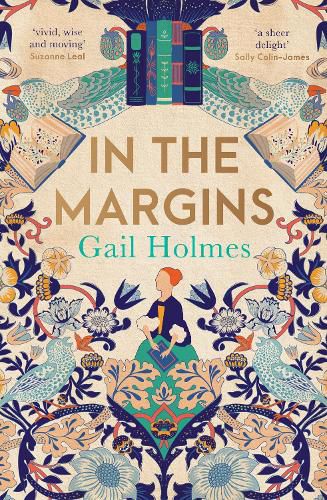Readings Newsletter
Become a Readings Member to make your shopping experience even easier.
Sign in or sign up for free!
You’re not far away from qualifying for FREE standard shipping within Australia
You’ve qualified for FREE standard shipping within Australia
The cart is loading…






England, 1647. As civil war gives way to an uneasy peace and Puritanism becomes the letter of the law, Frances Wolfreston, a rector's wife, is charged with enforcing religious compliance by informing on her parishioners. This awful task triggers memories of her mother, Alice, who inspired Frances’s love of books and secretly practised Catholicism at great risk. Conflicted, she doesn’t report a reclusive and mysterious midwife to delay her going to gaol.
As Frances takes increasingly bold steps to help the women and children of the parish, she attracts the ire of a patron of the church who questions why Frances collects books that she charges are entertainment. When her mother is gaoled for religious crimes, the secrets Frances hides from her husband begin to surface, and she is faced with an impossible choice: comply with the strict dictates of the new laws, or risk everything to free the women she cares for.
In this tender and powerful work of imagination, the life of a remarkable woman who wrote and lived in the margins in a time where women's voices went unheard is restored to history. Beautifully written and deeply moving, In the Margins is a testament to the way literature can illuminate our inner lives and set us free when the world around us is covered in darkness.
$9.00 standard shipping within Australia
FREE standard shipping within Australia for orders over $100.00
Express & International shipping calculated at checkout
England, 1647. As civil war gives way to an uneasy peace and Puritanism becomes the letter of the law, Frances Wolfreston, a rector's wife, is charged with enforcing religious compliance by informing on her parishioners. This awful task triggers memories of her mother, Alice, who inspired Frances’s love of books and secretly practised Catholicism at great risk. Conflicted, she doesn’t report a reclusive and mysterious midwife to delay her going to gaol.
As Frances takes increasingly bold steps to help the women and children of the parish, she attracts the ire of a patron of the church who questions why Frances collects books that she charges are entertainment. When her mother is gaoled for religious crimes, the secrets Frances hides from her husband begin to surface, and she is faced with an impossible choice: comply with the strict dictates of the new laws, or risk everything to free the women she cares for.
In this tender and powerful work of imagination, the life of a remarkable woman who wrote and lived in the margins in a time where women's voices went unheard is restored to history. Beautifully written and deeply moving, In the Margins is a testament to the way literature can illuminate our inner lives and set us free when the world around us is covered in darkness.
Literature has a way of transcending distance and generations, an ability to connect us to those with whom we have little else in common. Reading In the Margins, I was connected to Frances Wolfrenston, a rector’s wife and book collector in the 17th century, just as she was connected to her mother through their shared love of Shakespeare, and as she connects with the children she teaches to read.
In a slowly stabilising Puritan England, Frances is tasked with enforcing religious compliance within her village; a task which involves controlling the freedom of speech, of activity and of movement of those most vulnerable. Remembering her mother, the devout Catholic who taught Frances to read, she quietly defies not only the Puritan laws, but also fosters literacy and expression among the women and children in her village.
When Frances finds out her mother has been imprisoned for religious crimes, the stakes heighten. Separated by prison walls, a day of travel, the wishes of both her husband and father, and by religious practise, the two women remain connected only by their mutual love for Shakespeare, for the language that unites us all.
In this love letter to literature, language, and to the women who have, quietly, allowed for the proliferation of it, Gail Holmes highlights the power of the ordinary. Her women are not radicals or fighters – they are readers, mothers, friends, teachers. They are the women usually doomed to remain in the margins of our history books. However, Holmes shows that ‘well-behaved’ women can make history – the power of words, books and community can change the world.
See what the Readings’ team have to say on the blog, discover related events and podcast episodes.
Travel to Ancient Greece to Renaissance Italy to the trenches of war, with these incredible historical reads.
Find your next read amongst these new Australian books, hot off the press!